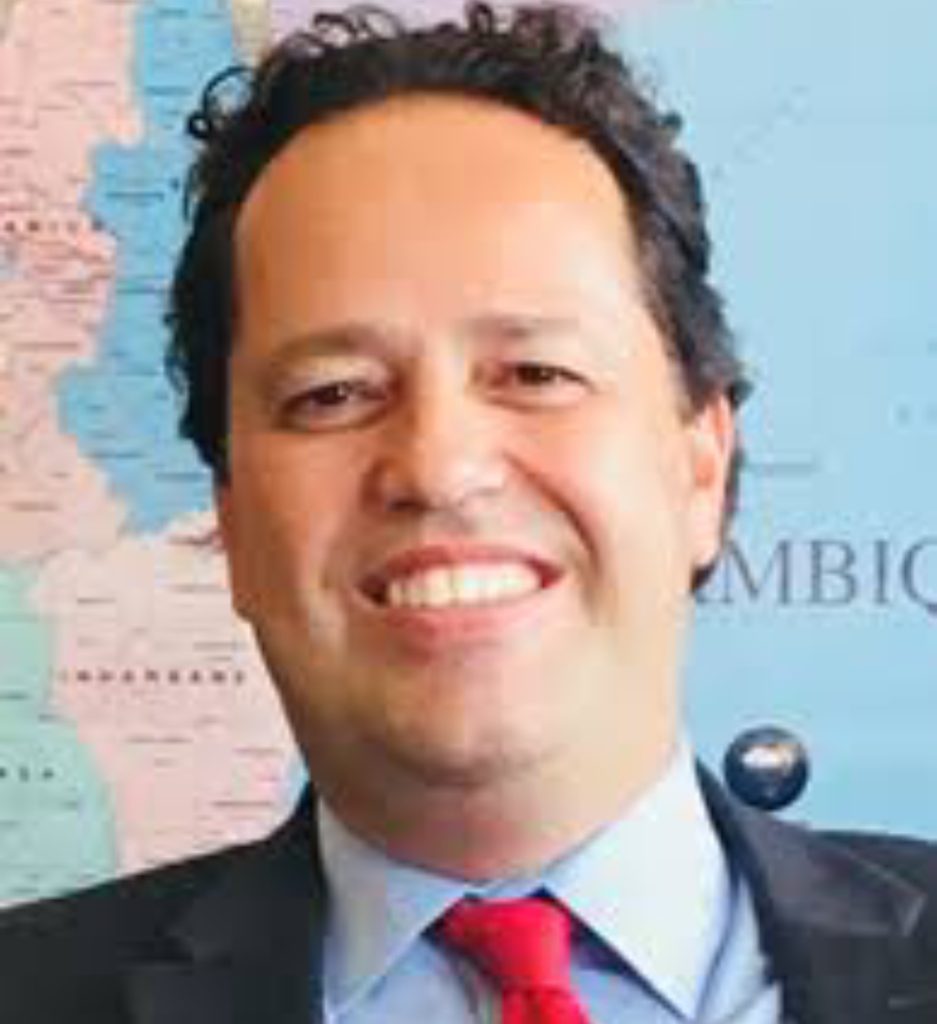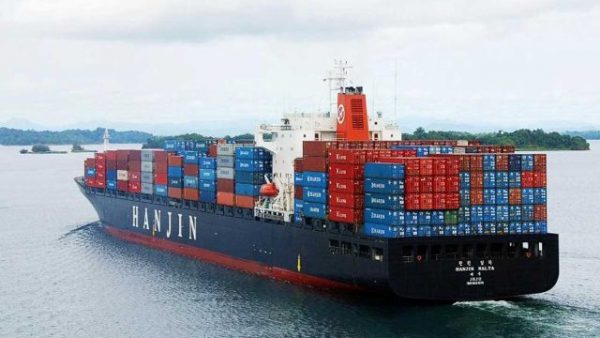Why Nigeria Must Not Reverse Subsidy, Unified Forex Window Policy- IMF

Mr. Ari Aisen is the outgoing Resident Representative of the International Monetary Fund(IMF) in Nigeria. In this interview, he speaks on macroeconomic realities in the country condemning any plans by the Federal Government to reverse the removed subsidy on fuel pump price and free floating of the naira, saying it will trigger economic growth in due course because of foreign investment inflow spurred by economic predictability. Courtesy of Arise TV. Enjoy it.
The latest figures of 87.4 trillion Naira from the debt management office as at June. How can any development take place with that numbers of debt profile?
You know the issue of debt has been discussed broadly and I think what is important is what feeds into the debt stock which is fiscal deficit. It’s the needs of the government that needs to be curtailed, so that that stock can actually be maintained or avoid growing further away from reasonable amount. So, as of now, debt to GDP is still at a moderate level in Nigeria. It is very important that policies are put in place, particularly fiscal policy to reduce financial needs of the government and you know the removal of fuel subsidy was a very important step because fuel subsidy costs 2 percent of GDP last year and it was heading to the financing needs and the stock of the country.
The GDP growth, second quarter of this year stands at 2.51 percent, you’ve seen those aspirations, the administration wants to get us to 7% annually, and is that realistic. What do you think it will take to grow at 7% or more?
Growth has been soft and as expected, partly because of the rise in price of fuel. Inflation has been high and unfortunately biting the real income of Nigerians. That has an impact on consumption. But, you know we are in a transition period and the initial moves of the reforms were in the right direction, removal of subsidies and unification of the exchange rates. These reforms need to continue and reach what we will call stability- macro-economic stability, because if inflation can get lower, if the exchange rates is more predictable then investment can actually start coming to Nigeria.
These are very good possibilities for the country. And for the potentials, I’ve always said that it has been there and will continue to be there and is to be unlocked. So, after the transition, that needs to be well managed to avoid any potential reversal to prior policies of subsidizing fuel and controlling the exchange rate. These transitions will eventually lead to a much better outlook for the Nigerian economy and let’s not forget, this economy had grown in double digits not long ago and I’m sure that with the potential and the ingenuity of the Nigerian business sector, with supportive policies and conducive business environment we are going to see Nigeria again in double digit grow rate.
Another thing is that we need inclusive growth GDP to lift people out of poverty. But, how can you fight poverty when you’ve got 5million people fallen into poverty in 2022, another 8 million between 2020 and 2021, that’s 13million?
Indeed, to achieve growth inclusivity, you need to have job creation, that’s very important. You need to have that so people can be included in the economic activities and of course, tightening policies which are needed come with a cost. So, it’s very important in my view to support the most vulnerable society through this challenging times. So, they eventually can also transit, despite the hardship into a better position later on. So, all the conversations about social transfers through the poorest needs to continue.
The World Bank has been having very important discussion on this. Hopefully, the government can launch this important social transfers, so there’s no simple solutions to these problems. We always knew that there would be some transitions that will bring some pains to all involved. Both the government and private sector particularly delivers those welfare in the society and together promote a solution that saves the pain from those most vulnerable in the society. Just to conclude on that, eventually, if we pass this transition, investments will return to the country from abroad and domestic. There is confidence and the job creation is a natural consequence for that and with inclusive business.
So, should Nigeria swallow their pride and seek a bail out loan from the IMF?
That’s always a question I hear in various corners. I don’t think it’s a question of pride per say. In general, the Nigerian economy can aspire to stabilize without the IMF. It’s centrally a sovereign decision of every member country in case of needs, but, let’s not forget that all your prices are very supportive, the balance of payments are in reasonable position. I mean the trade position is good so, it’s really a question of bringing more of these surplus into the economy and for example containing or making sure that oil production benefits the economy in critical times
. So, oil revenue and oil export should benefit for an increase production of oil and that is part of what we believe the government should redouble or double effort to be able to increase the intake from the oil sector. Revenue should also increase in the oil sector through better compliance. The compliance gap is very large in Nigeria. Very few people are paying their dues, those who pay may feel that they are bearing all the burden. So it’s important to broaden the tax base to include more tax payers and in parallel, governance and good use of funds needs to accompany those increased tax payment so, that everyone feels more comfortable with the new realities with a revenue to GDP ratio of only 8.8%.it is very difficult to make a meaningful contribution to improve social indicators in Nigeria.
That’s an essential issue for the country. I think new administration is spot on in terms of conversations and with the private sector on how everyone gets and start collaborating to this effect of bringing, boosting revenues, providing public goods and services as they should.
What do you make of the exchange rate we are seeing today?
Yes, there has been quite a bit of effort from the authorities in the past weeks and months of trying to bring more supply of foreign exchange into the market. And I believe those initiatives should be welcomed. They are advertising Nigeria abroad, have had very successful visits to the UAE, and the New York. It is very important for the image of Nigeria, and its potential can come across clearly to all stakeholders, investors, both locally and abroad. But, a lot of focus should also be on the supply of naira, not only the supply of foreign exchange and here is what we have been saying for quite some time.
The need of tightening monetary policy, taking liquidity out of the system. There were too many naira chasing yet too few dollars as I have alluded before in previous conversations. It is very important to reduce the amount of naira, reduce the growth rate of money supply domestically in Nigeria. The fiscal policies should cease to rely on the ways and means and we’ve heard that this is so far taking place this year, that is, some legacy issues.
Phasing out all the operation of the central bank that are not conducive to liquidity to the amount of naira in the economy, phasing out financing of the fiscal deficit of the government, focusing on price stability, tightening monetary policy is going to be needed. It’s going to be costly, it doesn’t come without a price, but, it’s a price worth paying. First, if you protect the poorest and most vulnerable in the society, second, if you manage to stabilize the economy in one year and a half, maybe in two years..
Your time as resident representative here in Nigeria is coming to an end soon and we have taken you as an adopted son here. You have done some good work analyzing the Nigerian economy, giving us the best advice. Can you reflect on your time, what is next for you?
This is a tough question, very emotional. You know we Brazilian, Latin America feels closely connected. The IMF, it’s being an honour to represent this dearest institution here in Nigeria. I can only say my first word is of gratitude for Nigeria, Nigerians for welcoming me with open hearts, hospitality, from their wonderful Jollof rice, all the beauties this wonderful nation and people offer.
You know time has come for me to move on to different chores, to Washington and I will certainly leave Nigeria with a sense of optimism that Nigeria will succeed. It has to succeed. It has good friends, including the IMF and you know it’s destined to be the powerful country it should be in Africa -the giant of Africa and Africa depends on Nigeria succeeding and Nigeria depends on Nigeria succeeding and the entire world. In fact, I will continue to accompany this country in all the future policies and rooting for success much good than to come and only good news for growth inclusive and reduction of power for all Nigerians. Thank you






